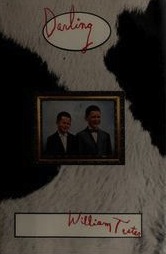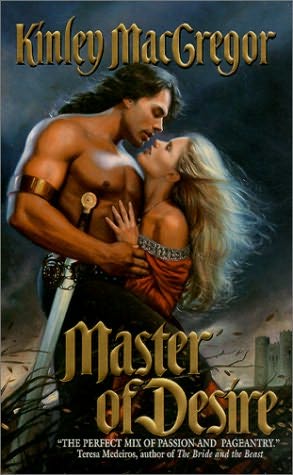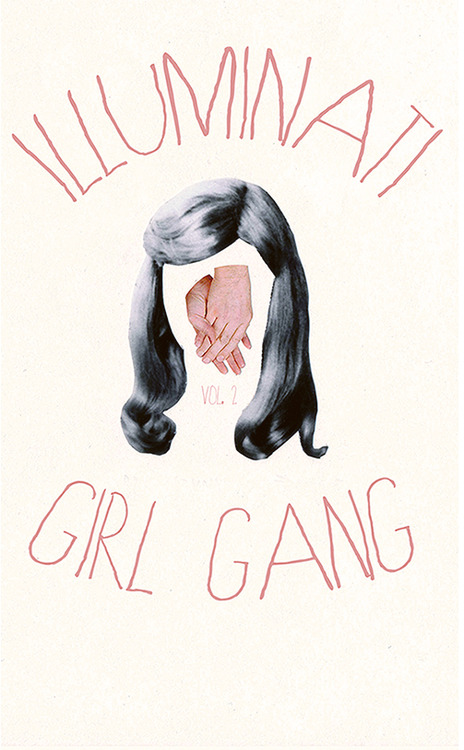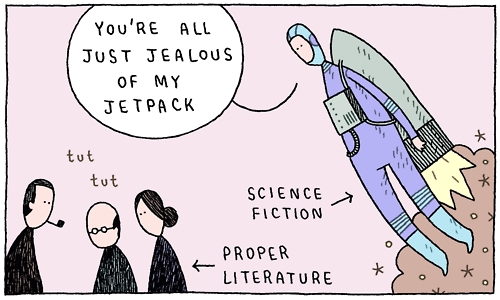Eating Donuts with Michael Kimball

I showed up at Michael Kimball’s sweet new condo with a dozen donuts.
His father was a fat man, like the title character in Big Ray, Kimball’s latest novel that you’ve heard so much about. We poured out glasses of orange juice, and in memory of his father, dug into those gross ass donuts.
For the first twenty minutes of what would be a two hour conversation, Michael recounted the events of the previous Saturday night, a rowdy, drunken time we had that I beered out of memory. Listening to the stories was like hearing about myself as if I was my own close friend who missed a party I threw.
Reading Big Ray is like hearing about an equally close friend processing some serious loss. Michael Kimball does emotional immediacy better than any writer alive, I shit you not. READ MORE >
<:-O___>:-0___\:-/_____ “Can anything be poetic? Well maybe the same way nearly anything can be spray-painted.”
The 2012 Literary Magazine Rankings! As compiled by a single dude, based on a single source.
Wish I lived in a world where we could all meet at Hooters and watch Ploughshares and Conjunctions face-off in the Tostitos Literary Fiesta Bowl.
25 Points: Darling
 Darling
Darling
by William Tester
Knopf, 1992
177 pages / $9.95 buy from Amazon
1. “I have this room inside my head, a lightless, nightmare kind of room that I pretend is where I am. A smaller me sits in its darkness.”
2. “My mama in her mirror smiles at her, ahold of me, jewelry, makeup, mother, child. She pets my cowlick down and pats me gentle swattings on my butt. She’ll take or leave me– queen of us. She’s pretty. Mama lets me know that she’s the most loved one of us. I move for room to let her sit beside me, scoot across the stool. I’ll flirt for her; I’ll court, or woo her with my smallness. I’m this big: my head tops even with her dresser, with my hand to make a bridge. It feels like I’m this bunch or bundle, six potatoes in a bag. This pet. A useless tiny person, me so close down to the ground, potato legs and chest and elbows, with my big potato head.”
3. “Her hair reminds me then of boards.”
4. “Sometimes her neck is like an animal alive inside of her.”
5. “By now I’ve half decided how it is we’re going to die, Jeab gone to elsewhere in his liquor, me– I’ve wallowed on the thought that I’ll be shot down like a dog, or struck with bricks fell from a window, held and throttled while some killer smacks a hammer through my skull in a squirt of pain.”
6. “It wanders backwards lost and blinded toward an ant bed death to come. Me, I’m a giant to the bug. I wonder what its tiny mind is like, what nonsense it must live.”
7. “I hear the gyroings and gears inside the belly of the world, oily and in tar– and in the sky, the set chain of the wider all– turns.”
8. “A kind of line in me connects me to the gym and chilly stalls, a line that draws me like a toy across the sky between my arms, the flapping, thuddy noise of sprinters, shouting, fearful coughing me.”
9. “Chlorine and sneaker smells of feet the taste of pennies dew our air.”
10. “He butts his head bone in her bag like he is eating her from out of her or pulling out her blood.” READ MORE >
October 31st, 2012 / 1:09 pm
In defense of romance novels
 Piggybacking on Mike’s earlier post, I have long found it curious that the romance novel is the one genre no one wants to defend. (See, for instance, this comment.) But time was, romance was the genre.
Piggybacking on Mike’s earlier post, I have long found it curious that the romance novel is the one genre no one wants to defend. (See, for instance, this comment.) But time was, romance was the genre.
It seems to me that the contemporary romance novel—of the paperback bodice ripper variety (see right)—arrived on our shores of our literary imagination in no small part due to writers like D. H. Lawrence. And what could be more literary than Lawrence? I myself can conceive of no formal reason why a romance novel can’t be art. Indeed, I suspect that someone out there is already writing great ones. (Hell, isn’t Lolita a romance novel?)
Part of what I love about this Chicago Reader review of The Twilight Saga: Eclipse is its understanding of how Stephanie Meyers’s books and the resulting films—regardless of their quality (I haven’t read or seen them yet, though I intend to)—do partake of a larger literary tradition:
On the inevitability of more Star Wars films
| film | year | production budget | worldwide gross |
| Star Wars | 1977 | $11 million | $775,398,007 |
| The Empire Strikes Back | 1980 | $18 million | $538,375,067 |
| Return of the Jedi | 1983 | $32.5 million | $475,106,177 |
| The Phantom Menace | 1999 | $115 million | $1,027,044,677 |
| Attack of the Clones | 2002 | $115 million | $649,398,328 |
| Revenge of the Sith | 2005 | #113 million | $848,754,768 |
| $404.5 million | $4,314,077,024 |
Net profit: 3.9 billion dollars.
And that’s just ticket sales.
25 Points: And So
 And So
And So
by Joel Brouwer
Four Way Books, 2009
88 pages / $15.95 buy from Four Way Books
1. And So was published in 2009, and so I’m reviewing it now, in 2012.
2. There’s always a time lapse in reading; and so we are all the silhouettes of each other’s ideas of fireflies.
3. Except: we aren’t all silhouettes of each other’s ideas of fireflies. Sometimes we cease to be apart and begin to be together in a way that is (and is not) like a dump cake. It is as Brouwer writes in “In a Motel Halfway to Omaha”: “At dawn she said she had to go to work and he / said not until I do it to you again slut / and she said ok whatever bad man and so” we go on with our dump cake selves.
4. People exist; people have sex. There are people in And So and so they have sex. A lot.
5. If And So were an album, it would be less Marvin Gaye’s Let’s Get It On and more Fiona Apple’s The Idler Wheel is Wiser Than the Driver of the Screw and Whipping Cords Will Serve You More Than Ropes Will Ever Do. And So is not a long title, and so it’s easier to say—which is more important than many things (like shallots).
6. And So is intimately concerned with its use of language, and so am I.
7. The cover art of And So is, to my mind, a series of frames, a series of ways of looking at things (read: people, relationships, the Mona Lisa). I am bothered by our inability to escape from frames, and so the cover art disturbs me.
8. As I break these thoughts to twenty-five pieces—as I frame them—I am wary of: the need for this review; the time that has elapsed between the publishing of this book and the writing of this review; the need for this form for this review; my place in this review; the book’s place in this review; if this review is actually even a review, or if it is a personal essay, co-opting this strange and lovely book of Brouwer’s for its (my) own purpose. I am wary, and so I do what I always do when I am wary: I tell you.
9. But if this were a personal essay, wouldn’t I tell you about my mother, her schizophrenia? I’m not telling you, and so it can’t be a personal essay.
10. But now I’ve told you, and so it must be. Perhaps it always is/was. READ MORE >
October 30th, 2012 / 8:05 pm
Illuminati Girl Gang Vol. 2
The second issue of the all-female literary zine Illuminati Girl Gang, edited by Gabby Gabby, is online, featuring work by Luna Miguel, Roxane Gay, xTx, Mira Gonzalez, Cassandra Troyan, Maggie Lee, Ashley Opheim, Natalie Chin, Carolyn DeCarlo, Bunny Rogers, Alice May Connolly, and more.
Arthur Krystal and Everyone’s Favorite Genre Fiction Fallacy
It seems perhaps in poor taste to post today with all of Sandy’s madness, but the way people talk about genre fiction and literary fiction has long been a sore subject for me. In graduate school (though not in my undergraduate program, where the faculty were both more open-minded and more emotionally mature), I struggled with instructors and students for reasons relating to this limp distinction. As a writer trying to make a career for himself, I struggled for a long time to find venues that would not reject my blended approach out of hand, and sometimes I still do.
Don’t cry for me, Argentina: I’m doing just fine, and in the long term I expect to do better. But it never feels good to see the things you love to make, and the things you often love to read, dismissed out of hand. Arthur Krystal thinks he’s being a brave truth-teller when he takes to The New Yorker to restate his opposition to including genre fiction in the category of literature, but he’s not being brave. Instead, he comes off as weirdly incapable of reflection. There have been a thousand articles like Krystal’s, and they always make the same very basic mistake: their conclusion (genre fiction’s inferiority to literary fiction) is also their premise. That is to say, they are begging the question. Click below the fold to see what I mean! READ MORE >
Empire

On July 25, 1964 between 8:06 p.m. and 2:42 a.m., Andy Warhol filmed the Empire State building from the 41st floor of the Time-Life building. The 6 hour and 36 minute footage was then played at 2/3rds the speed, totaling 8:05 hours, with specific somewhat antagonistic parameters to be shown without abridgement. One imagines Warhol’s habitual shades as his own private darkened viewing of the slowness of time. In 2000, the Andy Warhol Museum created a 60 minute more watchable DVD of the film. Impatience is the best target audience. As the summer night descends in the first hour with pixelated humidity, the film enters its main inert narrative of exterior floodlights flickering in complete darkness. In 1993, Tom Hanks and Meg Ryan would meet atop the same building, hashing out some nuptial narrative about serendipity, and more DVDs would be sold, Don Delillo now hunched over a computer typing sparse prose about his city unplugged from the square constellations of office windows arranged in the same grid by which the streets and avenues are marked. The “unwatchability” of the film supposedly gave it meaning, like a sun so apparent by its target you trust is there without actually looking. Insecty specs from the film’s graininess betray its mimesis, and one is reminded of frames traversing over a lens with Platonic cave-like allegory. The kooks waiting for the Mayan 12-21-12 are giddy about the environment, proposing a premature end to our days. Of course, when the house lights come back on, you may consider the passed boredom a kind of performance art. Our hurricane is most unique, her chronic connectivity and swift dissemination unable to communicate the end of the world. If only we could end this world by stop counting. The deprivation of an online moment, after the battery dies, may be so fecund with actual moments — the hourglass time of a dripping faucet; the cracking jaw of a yawning cat; a fly whose mind knows not what a windowpane is — there won’t be enough film to film it. I fantasize about the end, the last text I send. Four years later, Warhol will be shot. He had misplaced a crazy person’s script, as life itself doesn’t have any lines.


